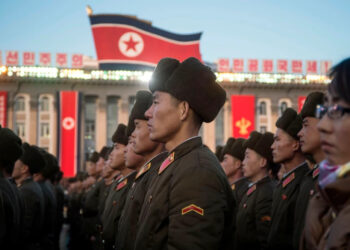On a recent Thursday, Russia returned the bodies of 1,000 soldiers to Ukraine as part of an agreement reached during peace talks last month. This development was confirmed by officials from Ukraine’s government body responsible for the coordination of prisoners of war.
The talks, which took place in Istanbul, saw two rounds of negotiations between Moscow and Kyiv. However, these meetings did not advance a ceasefire, instead resulting in large-scale prisoner exchanges and arrangements to return deceased soldiers’ remains. Ukraine’s statement highlighted that Russia claimed these individuals were Ukrainian citizens, including soldiers. Kyiv has previously accused Russia of delivering the bodies of deceased Russian soldiers disguised as Ukrainians during repatriation processes.
Vladimir Medinsky, a Russian negotiator and Kremlin aide, reported that Ukraine had sent back the remains of 19 killed Russian soldiers in exchange for the 1,000 Ukrainian bodies. He shared images of individuals in white medical suits unloading body bags from refrigerated trucks.
Throughout the ongoing conflict, exchanges of captured soldiers and the repatriation of remains have been one of the few successful diplomatic efforts between the two nations. Despite mounting pressure from U.S. President Donald Trump on Russia to agree to a ceasefire, Moscow has repeatedly rejected such calls. Consequently, there seems to be little progress toward ending the three-year conflict, as both sides remain entrenched in their positions.
During last month’s talks, Russia presented a set of stringent demands, including the ceding of additional territory by Ukraine and the rejection of all forms of Western military support. These demands were dismissed by Kyiv as unacceptable ultimatums, raising questions about the viability of further negotiations if Moscow continues to refuse concessions.












